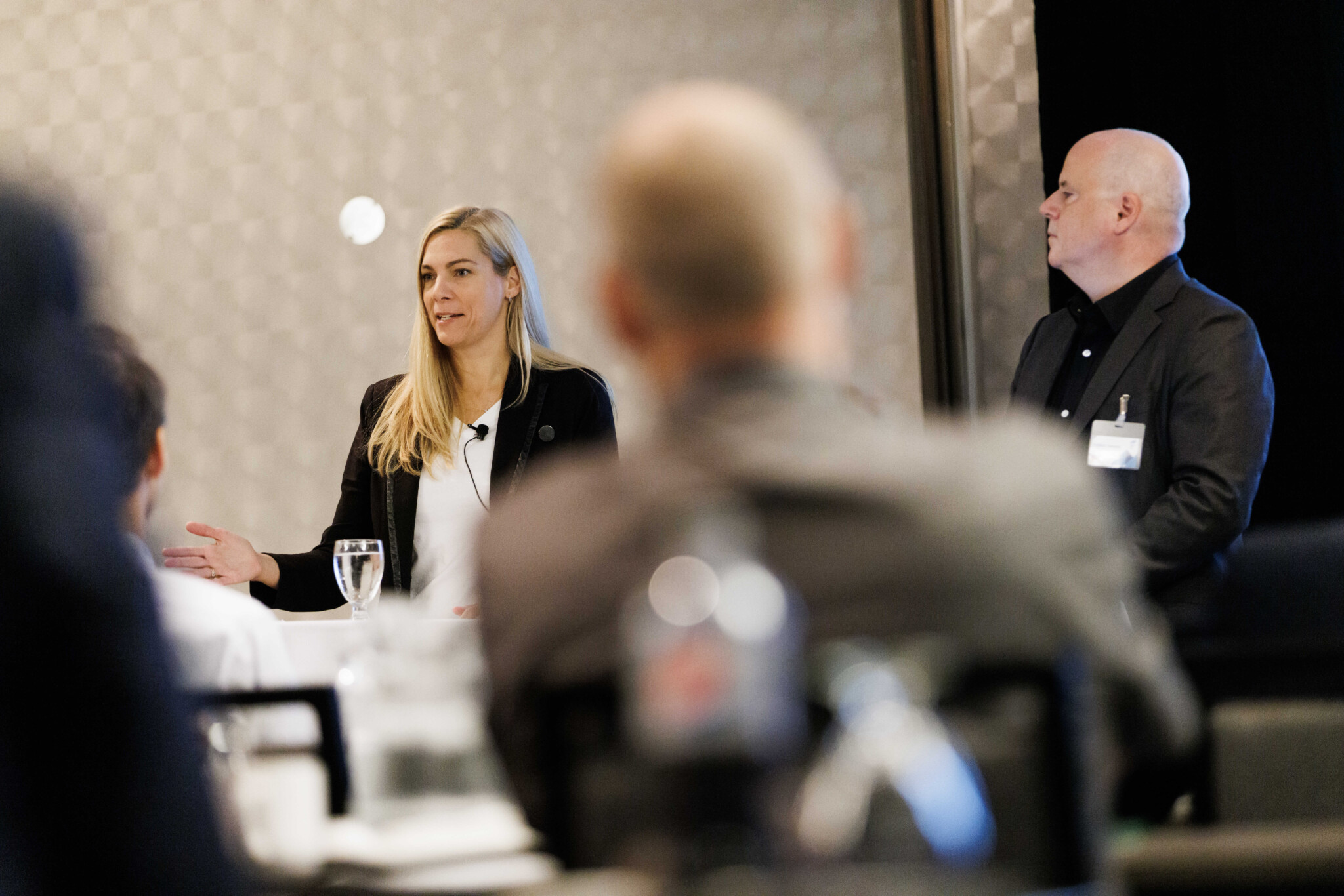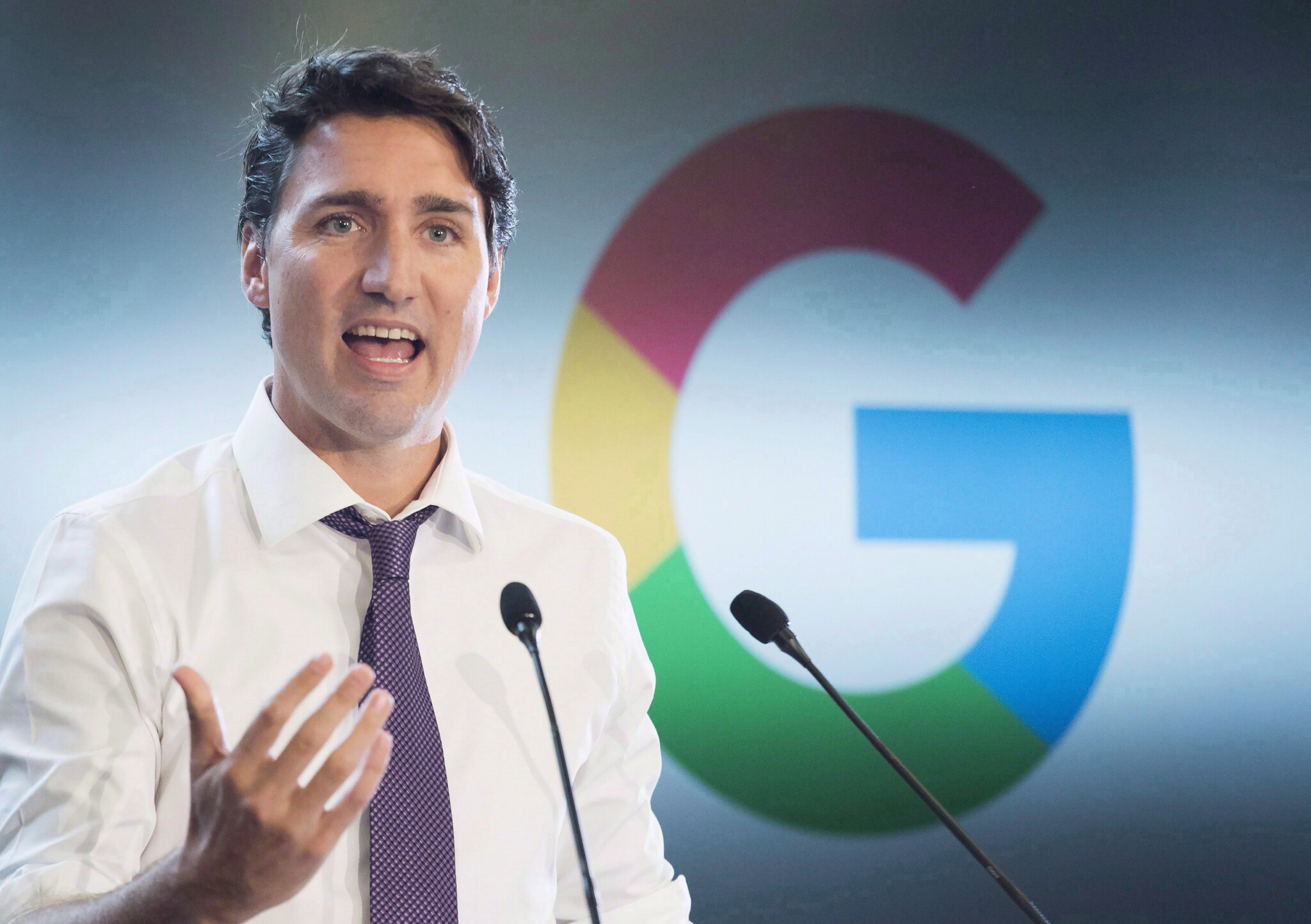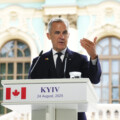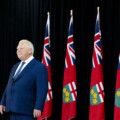Welcome to my Full Press column, a bi-weekly round-up of the interesting stories in media worth paying attention to. Be sure to catch The Hub’s accompanying Full Press podcast, debuting this week.
Online legislation lies front and centre in Trudeau’s legacy
Of all the things the Justin Trudeau government will be remembered for, in the long run, one of the most consequential will have been its inability to understand the internet. More specifically, its impact on how we communicate and consume information.
That deficiency has been apparent since 2018 when the Broadcasting and Telecommunications Legislation Review panel, which begat the Online Streaming Act, was launched. Thus began the mission to “modernize” the Broadcasting Act by expanding its scope and putting an agency called the Canadian Radio-television (emphasis mine) and Telecommunications Commission (CRTC) in charge of all audio and visual content on the global internet, including podcasts.
The government spread disinformation about the bill, insisting podcasts weren’t included, although even those with modest literacy skills could see that it was. Years of persistence on this by critics—most news media failed to fact-check the government’s position—finally forced Heritage Commissioner Pascale St-Onge to concede that, yes, the likes of Dr. Michael Geist, the Canadian Internet Society, and others (including this writer and the Macdonald-Laurier Institute) were correct: the CRTC had been given the power to regulate podcasts. Wisely, St-Onge authored a policy direction instructing the CRTC to not avail itself of those powers, although one senses that the regulator really wishes she hadn’t.
Just how important it was to win that battle became clear last week when polling numbers came in on Jordan Peterson’s podcast with Pierre Poilievre, leader of His Majesty’s Loyal Opposition and the man many believe will become prime minister in the months ahead.
Peterson, while recognized internationally as Canada’s most famous public intellectual since Marshall McLuhan, is nevertheless a controversial figure much loathed by those on the Left and, notably, among Canada’s punditry, many of whom were shocked—shocked, I say—that Poilievre would keep company with a mug like Peterson whose net worth has grown into tens of millions even while he was banned by Twitter for misgendering Elliot Page.
No doubt to their dismay, Abacus discovered that one in five Canadians claimed to have watched at least some of the 100-minute discussion. Among men ages 18-29, that number hits 34 percent.
These are breathtaking numbers, even if more than half of those polled hadn’t even heard of the event. For context, that’s nearly as large an audience as last year’s Super Bowl drew in Canada, more than double the size of Grey Cup TV viewership, and more than watched Game 7 of the 2024 Stanley Cup Final between Edmonton and Florida.
The manner in which Canadians gain and disperse knowledge has changed. Podcasts, at the listeners’ leisure, take politicians and audiences beyond the trivial talking points and slogans that dominate so much of political discourse. You actually get, as retired Liberal MP Wayne Easter noted, to learn something.
“It was a good interview with points expressed that are of importance to Canadians,” he wrote. “I may not agree with all positions but I do want to know a leader’s stance.”

Pascale St-Onge, Canada’s minister of Canadian Heritage, left, speaks alongside Frederic Vanasse, general manager and editor of The Canadian Press french services, during the MINDS International conference in Toronto, Friday, Oct. 6, 2023. Cole Burston/The Canadian Press.
And yet our government is still legislating as if it’s 1994 and spending hundreds of millions annually to prop up dying legacy structures in the newspaper, radio, and TV world, trying to hold back the tides of change and the superior flow of information carried by them. On this file, the Liberals are not progressives. They are paleocons.
These are the impartial defenders of democracy?
CTV News, in its efforts to assess Trudeau’s legacy, was caught by Christine Van Geyn, litigation director at the Canadian Constitution Foundation, committing a significant error of omission.
No slouch on this file, Van Geyn was apoplectic when she noticed something missing in CTV’s report reviewing the handling of the Freedom Convoy. Referencing the use of the Emergencies Act, CTV noted that the Rouleau Commission concluded its invocation was justified. But here’s what it didn’t do: make any reference to the fact that the federal court found the government’s use of the act to be illegal and unconstitutional.
And yet, legacy news organizations still insist they be subsidized as “defenders of democracy.” Van Geyn may have been too kind when she referred to this report as “incredibly frustrating.”
The anonymous source slippery slope
At some point, I will write at length about increasingly slack rules employed by news organizations regarding anonymous sources. Time was when this was rarely permitted (it remains scarce when business affairs are involved) because it allowed people to avoid accountability.
While practices have always varied, it was common in Canada for editors to insist sources were granted anonymity only if their information was of necessary value to the public, and those being quoted faced imminent peril if their name was revealed. Alas, phrases like, “The Globe and Mail is not naming the MPs because they were not publicly authorized to disclose internal caucus discussions,” used on the eve of Trudeau’s announcement, or “Multiple sources spoke to the Star for this story on condition their names would not be revealed,” have become common.
But hold on. Britain’s press took matters to a whole new level last week, in their coverage of our prime minister’s apres moi, le deluge moment. Or get a load of this from Politico:
“‘We’ve reached a breaking point,’ said one Liberal who attended the meeting, and was granted anonymity to speak freely.”
That’s it? That’s all that’s required? Members of Parliament only need to say “I need to speak freely so for the love of God grant me anonymity as I undermine my leader while lacking the courage to take responsibility for my words?” That is not OK.
Christy Clark learns journalism still matters
This week’s tip of the hat goes to the CBC where Catherine Cullen caught Christy Clark just making things up about her past life as a member of the Conservative Party. It was a clean kill that, mysteriously, failed to immediately attract the attention of other news organizations. In any event, Clark has now taken herself out of the running for the Liberal leadership. Journalism can still make a difference, even today.
Please check out The Rewrite on Substack for more on media trends and behaviours. There is no paywall. And don’t miss the debut of The Hub’s Full Press podcast later this week.










